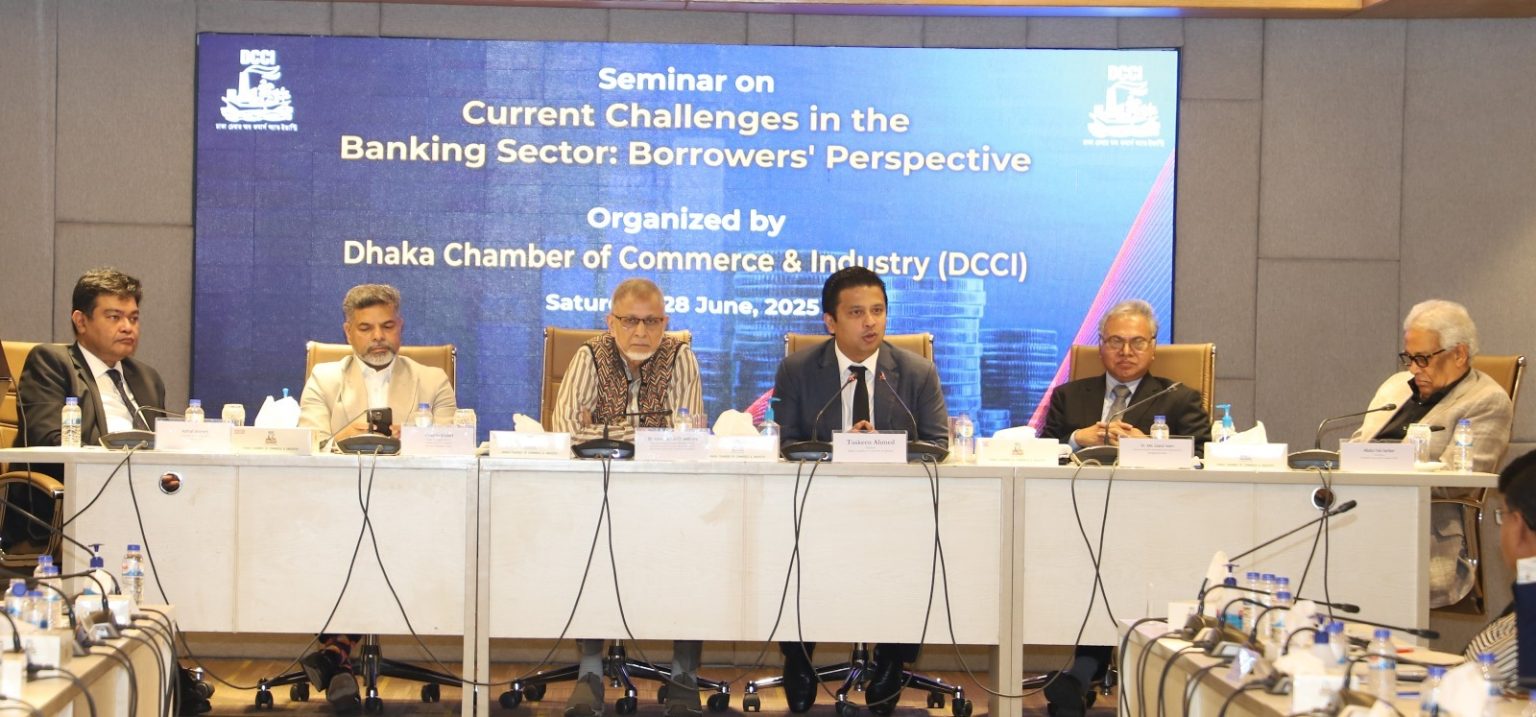The Dhaka Chamber of Commerce and Industry (DCCI) has urged the government and banking sector to prioritise credit flow to existing businesses amid growing stress in the financial system, warning that a sharp rise in non-performing loans (NPLs) is choking the private sector.
“If necessary, stop giving loans for new businesses for now. But at least provide credit to sustain the businesses where investors have already invested. Without support from banks, existing borrowers will face disaster,” said DCCI President Taskeen Ahmed at a seminar held in Dhaka on Saturday.
“This is a difficult time for borrowers. Many productive enterprises, especially in the small and medium sector, are now struggling to secure financing,” he added, while speaking at the seminar titled Current challenges in the banking sector: Borrowers’ perspective, organised by DCCI at its auditorium.
As of June 2025, the NPL volume has surged to Tk 4.2 lakh crore – over 24 percent of total outstanding loans – up from Tk 3.45 lakh crore six months ago. The DCCI president said the rise in NPLs has driven up collateral demands and interest rates, now averaging 14 percent, deepening uncertainty across industries. He proposed a six-month extension to loan classification deadlines to help viable borrowers stabilise.
Dr Anisuzzaman Chowdhury, special assistant to the Chief Adviser at the Economic Relations Division, said both borrowers and lenders must act responsibly. He stressed better coordination between monetary and fiscal policy and suggested that well-performing banks could lower lending rates voluntarily to support SMEs.
Ashraf Ahmed, DCCI director and former president, in his keynote paper said tight monetary policy has reduced import capacity by 31.8 percent. He estimated that businesses will pay an additional Tk 1.39 trillion in interest this year. He called for reforms in the capital market, energy security, and legal frameworks for loan restructuring.
Dr Md Ezazul Islam, executive director of the Monetary Policy Department at Bangladesh Bank, acknowledged that earlier fixed interest rate policies were a mistake. He said reforms were now under way and cited recent improvements in foreign exchange reserves and market-based exchange rate mechanisms.
Former DCCI president and group managing director of Anwar Group of Industries, Hossain Khaled, said the impact of NPLs is trickling down to SMEs connected to large industries. He called for a shift from transactional banking to long-term partnerships.
Mati Ul Hasan, managing director of Mercantile Bank PLC, proposed forming asset management companies under public-private partnership (PPP) initiatives to help banks recover bad loans. He also warned that industrial gas shortages may lead to further defaults.
Sohana Rouf Chowdhury, managing director of Rangs Motors Ltd, said high interest rates and instability are making manufacturing unsustainable. She urged for low-cost funds and extended repayment periods for priority sectors like electric vehicles.
Fazle Shamim Ehsan, executive president of the Bangladesh Knitwear Manufacturers and Exporters Association and managing director of Fatullah Apparels Ltd, said reliable borrowers are often being deprived of facilities, while clients of weaker banks are suffering due to the banks’ poor performance.
The seminar concluded with calls for urgent policy coordination to restore credit flow and investor confidence. Business leaders warned that without immediate action, the country’s productive base—not just new investment—faces serious erosion.


